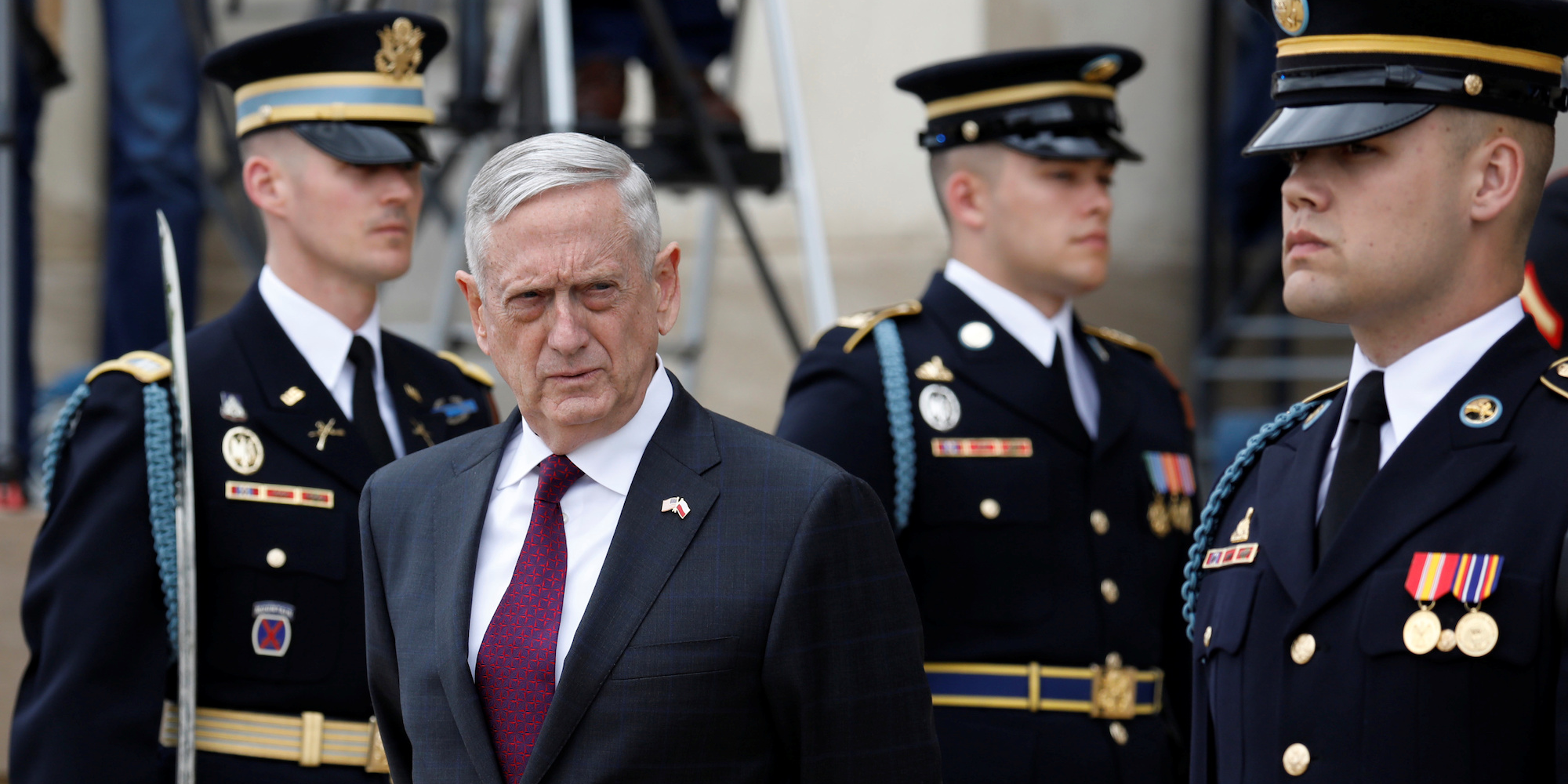- Defense Secretary Jim Mattis on Friday vehemently dismissed reports in the Australian media the US military is planning a missile strike against Iran’s nuclear facilities.
- Australian Prime Minister Malcolm Turnbull also denied the report.
- This all comes just days after President Donald Trump tweeted an all-caps threat directed at Iranian President Hassan Rouhani.
Defense Secretary Jim Mattis on Friday vehemently dismissed reports in the Australian media that the US military is planning a missile strike against Iran’s nuclear facilities.
“I have no idea where the Australian news people got that information,” Mattis told reporters. “I’m confident it is not something that’s being considered right now, and I think it’s a complete – frankly, it’s – it’s fiction.”
The Australian outlet ABC on Thursday published a report claiming officials from Australian Prime Minister Malcolm Turnbull’s government said the US was planning a potential strike and further claimed Sydney might help identify “possible targets.”
Like Mattis, however, Turnbull flatly denied the reports.
"President Trump has made his views very clear to the whole world, but this story … has not benefited from any consultation with me, the Foreign Minister, the Defence Minister or the Chief of the Defence Force," Turnbull stated.
This all comes just days after President Donald Trump tweeted an all-caps threat directed at Iranian President Hassan Rouhani.
On Sunday, Trump tweeted, "To Iranian President Rouhani: NEVER, EVER THREATEN THE UNITED STATES AGAIN OR YOU WILL SUFFER CONSEQUENCES THE LIKES OF WHICH FEW THROUGHOUT HISTORY HAVE EVER SUFFERED BEFORE. WE ARE NO LONGER A COUNTRY THAT WILL STAND FOR YOUR DEMENTED WORDS OF VIOLENCE & DEATH. BE CAUTIOUS!"
Trump's tweet came after Rouhani warned a conflict between the US and Iran would be the "mother of all wars."
The tweet prompted concerns of Trump's intentions toward Iran, especially in relation to his decision to withdraw the US from the landmark Iran nuclear deal back in May.
The Obama-era deal was designed to prevent Iran from developing nuclear weapons in exchange for the easing of economic sanctions, and was widely viewed as a major step toward establishing more stable, amicable relations between the US and Iran.
Trump's decision to walk away from the Iran nuclear deal was met with harsh criticism by key US allies, including France, the UK, and Germany.
That said, the president has repeatedly signaled he's open to new talks with Tehran and did so again Tuesday.
During a speech to the Veterans of Foreign Wars in Kansas City, Missouri, Trump said, "We'll see what happens, but we're ready to make a real deal, not the deal that was done by the previous administration, which was a disaster."
Mattis appeared before reporters on Friday after coming under sharp criticism for avoiding the press. His last on camera briefing at the Pentagon was in April.

